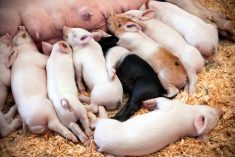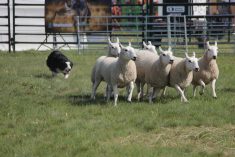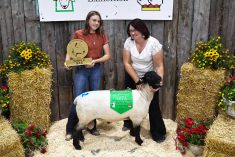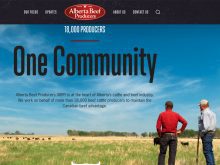A deal to sell an Alberta feedlot to an American investor has fallen through.
Alberta’s foreign ownership law doesn’t permit foreign ownership of more than 20 acres unless an exemption has been granted by cabinet. A request for an exemption was withdrawn Jan. 21 said Ryan Cromb, spokesperson for the department of government affairs. The application went in last fall but was set aside after the Alberta election was called last November.
The new minister, Ty Lund, requested more information and the applicants decided to withdraw at that time.
Read Also

Dennis Laycraft to be inducted into the Canadian Agricultural Hall of Fame
Dennis Laycraft, a champion for the beef industry, will be inducted into the Canadian Agricultural Hall of Fame this fall.
The buyer and seller need to work on the request together, said Cromb.
“The official applicant is the potential buyer, but in most cases the seller must be co-operating in providing much of the required information. Also, the buyer can acquire up to 100 percent ownership if the exemption is granted,” he said.
Seller Cor Van Raay said negotiations had not gone far on his Barrhill feedlot north of Picture Butte, Alta.
“It was just a verbal agreement,” he said.
Since the deal stopped, he has been putting cattle into the 25,000-head lot.
The prospective buyer, Cody Easterday of Pasco, Washington, has been interested in a move to Canada even before BSE closed borders. He owns an 18,000-head feedlot and also owns cattle in Alberta feedlots.
He started looking seriously last summer.
“The cost of gain is so attractive in Alberta I think our cattle will stay there,” he said. In the meantime, he plans to continue negotiating to buy in Canada.
“We’re going to continue to do that until we can get something figured out,” he said.
“We’re going to continue working with the government to see if we can get all the i’s dotted and t’s crossed,” he said.
Not only is Easterday anxious to buy in Canada, he wants the United States border to open to all classes of cattle as soon as possible.
While he made $300 per head profits on his fat cattle in the last two years without Canadian competition, he fears packing plants in the U.S. Pacific Northwest might close if trade does not resume soon.
The packing infrastructure in the U.S. northwest was developed to handle all classes of livestock from British Columbia and Alberta. Without that guaranteed supply, the four operations in the region are operating below capacity and are losing money. Tyson Foods’ Pasco plant was handling 2,200 head per day and is down to half that amount now.
“Washington is suffering financial losses from losing the cattle,” he said.















